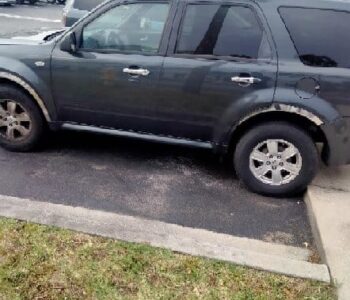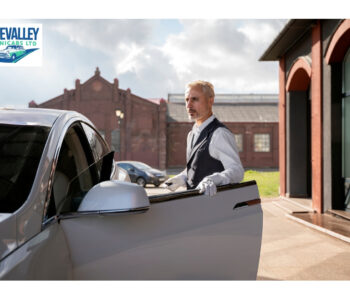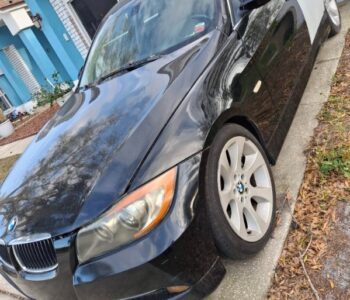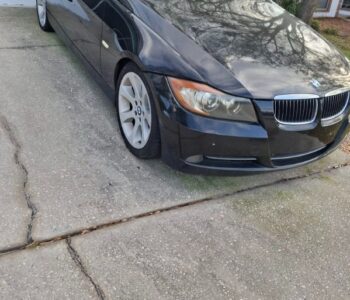 Travel
Travel
How to Rent a Car as a Tourist: Essential Tips for Foreign Visitor
- by ariasofia
Dubai, with its stunning skyscrapers, luxurious shopping malls, and vibrant culture, is a top destination for tourists from around the world. While public transport options are available, renting a car offers unparalleled freedom and flexibility to explore the city and its surroundings at your own pace. However, renting a car as a tourist can be daunting, especially if you’re unfamiliar with local regulations and driving customs. This article will provide essential tips to help foreign visitors navigate the process of renting a car in Dubai seamlessly.
Why Rent a Car in Dubai?
1. Freedom to Explore
Renting a car allows you to explore Dubai and its surrounding areas beyond the typical tourist attractions.
- Visit Off-the-Beaten-Path Locations: Discover hidden gems like the Al Qudra Lakes or the Hatta Mountains at your leisure.
- Flexible Itinerary: Change your plans spontaneously without the hassle of public transport schedules.
2. Comfort and Convenience
A rental car offers a comfortable and private mode of transportation.
- Air Conditioning: Dubai’s climate can be extreme, and a rental car provides a cool and comfortable escape from the heat.
- Convenient Storage: Keep your belongings safe and secure without worrying about carrying everything with you.
Requirements for Renting a Car
1. Valid Driver’s License
To rent a car in Dubai, you need a valid driver’s license.
- International Driving Permit (IDP): While many rental companies accept foreign licenses, it’s advisable to obtain an IDP if your license is not in English or Arabic.
- Age Requirement: Most rental companies require drivers to be at least 21 years old, although some may impose higher age limits for certain vehicle categories.
2. Identification Documents
Prepare the necessary identification documents required for renting a car.
- Passport: A valid passport is usually required for identification.
- Credit Card: Most rental agencies will ask for a credit card for the security deposit and payment. Ensure that the card is in the name of the primary driver.
3. Insurance Coverage
Understanding insurance options is crucial when renting a car.
- Rental Insurance: Most rental companies offer various insurance packages. Review these options to find coverage that suits your needs.
- Personal Insurance: Check if your personal auto insurance or credit card offers coverage for rental cars.
Choosing the Right Rental Company
1. Research and Compare
Take the time to research different rental companies available in Dubai.
- Online Reviews: Check customer reviews on platforms like Google, TripAdvisor, or specialized rental car review sites.
- Pricing Comparisons: Use comparison websites to find the best deals and understand the terms and conditions of each rental company.
2. Check the Fleet
Different rental companies have varying vehicle options.
- Vehicle Type: Consider what type of vehicle best suits your needs, whether it’s a compact car for city driving or an SUV for off-road adventures.
- Availability: Ensure that the rental company has the vehicle you want available for your desired dates.
3. Understand the Terms and Conditions
Before finalizing your rental, carefully read the rental agreement.
- Fuel Policy: Understand the fuel policy — whether you need to return the car with a full tank or if you can return it empty.
- Mileage Limits: Check if there are any mileage restrictions that could affect your travel plans.
The Rental Process
1. Booking Your Car
You can book your rental car online or in person.
- Online Booking: This is usually more convenient and allows you to compare prices easily.
- Direct Booking: If you prefer to book upon arrival, head to the rental desks at the airport or in the city.
2. Picking Up Your Car
When you arrive at the rental location, follow these steps.
- Documentation Check: Present your driver’s license, passport, and credit card to the rental agent.
- Vehicle Inspection: Inspect the vehicle for any existing damages and take photos for documentation.
3. Understanding Vehicle Features
Before driving off, familiarize yourself with the vehicle’s features.
- Controls and Indicators: Take a moment to understand the location of essential controls, including headlights, wipers, and air conditioning.
- Navigation System: If your rental car has a GPS or navigation system, input your destination before starting your journey.
Driving in Dubai: Essential Rules and Regulations
1. Know the Speed Limits
Speed limits in Dubai are strictly enforced.
- Urban Areas: Generally range from 40 to 80 km/h (25 to 50 mph).
- Highways: Speed limits typically range from 100 to 120 km/h (62 to 75 mph).
2. Seat Belt Laws
Seat belts are mandatory for all passengers in the vehicle.
- Fines for Non-Compliance: Failure to wear seat belts can result in fines for both drivers and passengers.
3. Mobile Phone Use
Using a mobile phone while driving is prohibited unless you have a hands-free device.
- Avoid Distractions: Stay focused on the road and avoid texting or browsing while driving.
4. Alcohol and Driving
Dubai has a zero-tolerance policy for drinking and driving.
- Legal Limit: The legal blood alcohol limit is zero; any detectable amount can lead to severe penalties, including fines and imprisonment.
Navigating Dubai’s Roads
1. Road Signs and Signals
Familiarize yourself with local road signs and signals.
- Bilingual Signs: Most road signs are in both Arabic and English, making navigation easier for tourists.
- Roundabouts: Yield to traffic already in the roundabout and use turn signals when exiting.
2. Parking in Dubai
Parking can vary depending on the area.
- Public Parking: Look for designated parking areas, which may be free or paid.
- Valet Services: Many high-end hotels and restaurants offer valet services for convenience.
3. Using Navigation Apps
Using a GPS or navigation app can make navigating Dubai’s roads easier.
- Google Maps: This app provides accurate directions and real-time traffic updates.
- Local Apps: Consider using local navigation apps that may offer additional features specific to Dubai.
Fueling Your Rental Car
1. Types of Fuel
Dubai primarily uses two types of fuel: petrol (gasoline) and diesel.
- Fuel Stations: Fuel stations are plentiful and often open 24/7. Most accept cash and credit cards.
- Self-Service: Many stations are self-service, allowing you to fill up your car at your convenience.
2. Understanding Fuel Costs
Fuel prices in Dubai are relatively low compared to many other countries.
- Budgeting for Fuel: Factor fuel costs into your travel budget, but generally, you’ll find that renting a car in Dubai is economical.
Returning Your Rental Car
1. Cleanliness and Condition
Before returning your vehicle, ensure it is in good condition.
- Clean Interior: Remove any trash or personal items from the car.
- Exterior Condition: Inspect the car for any damages that may have occurred during your rental period.
2. Refueling
Refuel the car according to the rental company’s fuel policy.
- Full Tank Required: If the agreement states that the car must be returned with a full tank, make sure to fill up before returning.
3. Final Inspection
During the drop-off, conduct a final inspection with the rental agent.
- Documentation: Retain a copy of the rental agreement and any final paperwork indicating the car’s condition upon return.
Conclusion
Renting a car in Dubai can significantly enhance your travel experience, offering the freedom and flexibility to explore this dynamic city at your own pace. By understanding the requirements, choosing the right rental company, and familiarizing yourself with local driving regulations, you can ensure a smooth and enjoyable rental experience. Whether you’re visiting iconic landmarks, hidden gems, or the beautiful desert landscapes surrounding the city, having a rental car will make your adventure in Dubai unforgettable. So, get ready to hit the road and enjoy all that this incredible city has to offer!









